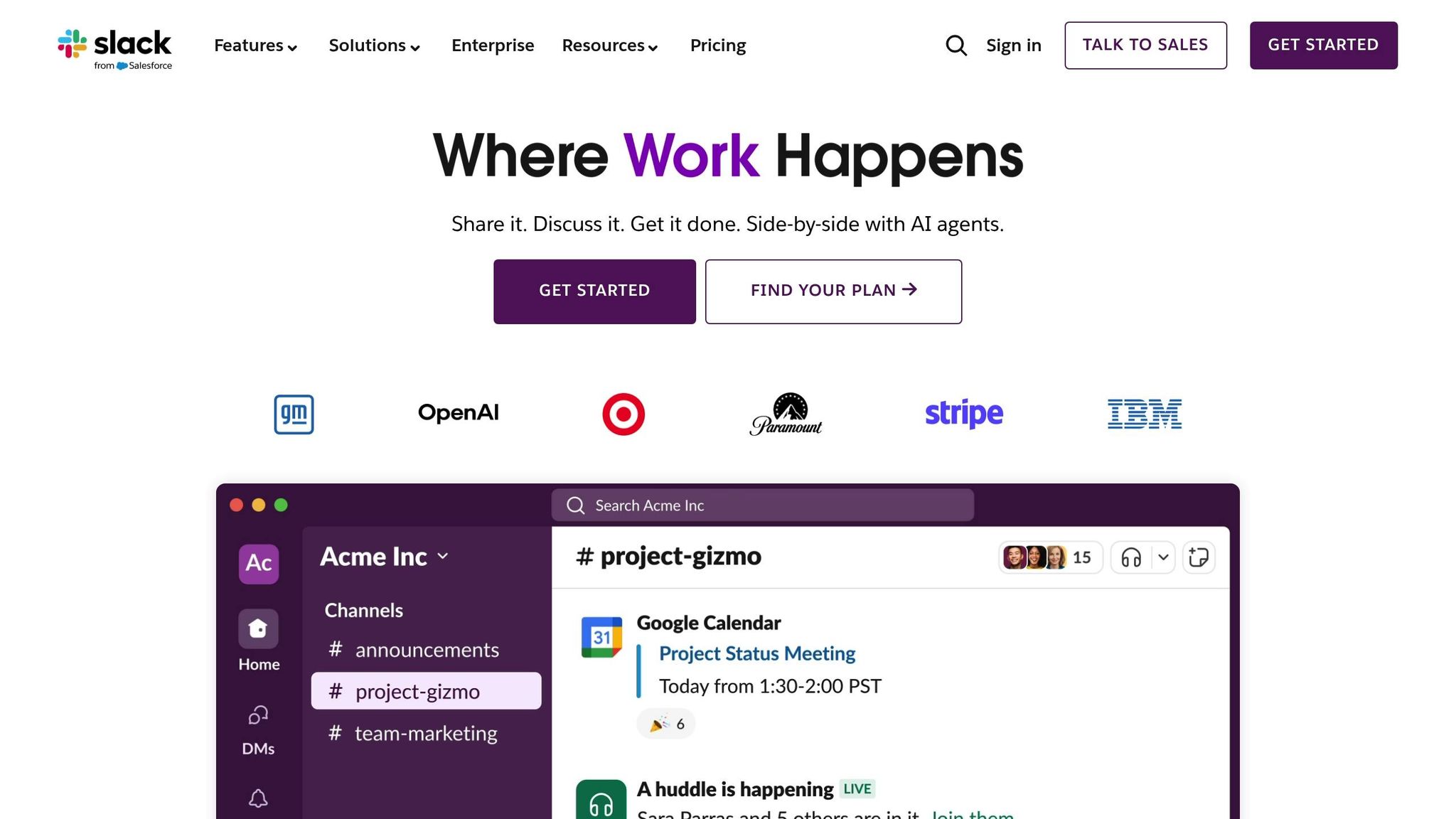Startups are transforming investor reporting with Natural Language Processing (NLP). This technology automates the creation of clear, actionable financial reports, saving time and reducing errors. Here's what you need to know:
- Why it matters: Investors demand fast, transparent, and easy-to-understand reports. NLP turns complex financial data into concise summaries, meeting these expectations.
- Key benefits:
- Simplifies dense financial data into plain language.
- Enables real-time updates (e.g., cash flow, burn rate).
- Reduces manual errors and ensures consistent reporting.
- Real-world examples: Companies like Access Holdings and Walmart have cut report prep times drastically using NLP tools.
- Challenges: Maintaining data quality and meeting U.S. compliance standards are critical hurdles. Solutions include better data preparation, training systems on regulatory requirements, and human oversight.
NLP is no longer optional for startups looking to stay competitive. By automating tedious tasks and providing real-time insights, it helps startups meet investor demands while focusing on growth.
TV Interview - Current Applications of LLMs & AI in Investment Management, benefits & drawbacks
Benefits of NLP for Investor Reports
In today’s fast-moving startup world, delivering clear and investor-ready reports has become a necessity. NLP (Natural Language Processing) is changing the game by making complex data more accessible, enabling real-time insights, and ensuring accuracy in financial reporting.
Making Complex Data Easy to Understand
NLP transforms dense financial data into straightforward, plain-English summaries, sparing investors the headache of deciphering technical jargon.
"NLP helps finance teams analyze, interpret, and summarize large volumes of written material. It's how you can understand what's buried in an extensive Management Discussion & Analysis (MD&A) section without reading it line by line." - Datarails
This capability is particularly useful for startups with intricate business models. By identifying key trends and patterns within financial documents, NLP creates concise, digestible insights. For investors juggling multiple reports in a day, this clarity ensures critical information is communicated effectively, regardless of their technical expertise or time constraints. Beyond convenience, it also supports real-time forecasting, keeping investors aligned with shifting market dynamics.
Real-Time Reports and Forecasts
With NLP, startups can deliver continuous financial updates, replacing the outdated quarterly reporting model with real-time data insights. Metrics like cash flow, burn rate, and runway projections can now be updated instantly, keeping investors informed at all times.
For instance, JPMorgan Chase showcased the power of NLP through an NLU-powered chatbot integrated into their business intelligence platform. This tool allowed executives to query complex financial data in natural language, cutting data analysis time by 40%. Similarly, Access Holdings Plc reduced the time required to prepare presentations from six hours to just 45 minutes. These examples underline how NLP-powered tools not only speed up reporting but also enhance the accuracy of forecasts by continuously analyzing market conditions, customer feedback, and operational data.
The ability to provide real-time updates ensures that investors always have the most current and consistent information, a critical advantage in fast-changing markets.
Better Consistency and Fewer Errors
Manual reporting often leads to inconsistencies and errors, which can erode investor trust. NLP solves this problem by standardizing report generation and automating processes that are prone to human error.
"NLP enables financial institutions to automate labor-intensive tasks, saving time and reducing operational costs." - Lumenalta
How Startups Use NLP for Investor Reports
Startups in diverse industries are reshaping how they handle investor reporting by using NLP (Natural Language Processing) tools to automate tedious tasks and deliver sharper insights. These advancements highlight how NLP is making investor reports faster and more precise, paving the way for more detailed case examples.
Case Study: Automated Report Generation
Startups are increasingly turning to automated report generation to save time and improve accuracy. Take Access Holdings Plc, for example. By integrating Microsoft 365 Copilot and Azure OpenAI Service, they reduced their presentation preparation time from six hours to just 45 minutes and cut code development time from eight hours to two. This shift allowed their finance team to focus on strategic insights rather than being bogged down by manual data tasks.
Walmart also showcases the power of NLP with its use of Natural Language Generation (NLG) technology. Their system automatically creates weekly performance reports for each store, saving hundreds of hours and ensuring consistent, data-driven updates across management levels.
In another sector, Acentra Health developed "MedScribe", an NLP-powered solution using Azure OpenAI Service. While designed for healthcare, "MedScribe" automated clinical documentation, saving 11,000 nursing hours and nearly $800,000. This example demonstrates how similar solutions could benefit startups in other documentation-heavy industries.
Example: Cutting Report Time with NLP
NLP tools are changing the game by transforming raw data into clear, actionable narratives, dramatically reducing the time spent on report preparation. Explo's AI-Powered Report Builder, launched in 2025, is a standout example in the FinTech space. This platform automates the labor-intensive process of pulling and organizing data for financial reports. Users can easily configure reports by selecting columns, applying filters, and aggregating data - key features for detailed financial analysis. Even team members without technical expertise can create in-depth reports using simple text queries.
Explo also enhances reports with customizable data visualizations, making complex financial information easier for investors to grasp. Features like report permissioning, data segmentation, and styling ensure that the reports meet specific business and client needs.
The importance of NLP becomes even clearer when considering the challenge of unstructured data. A staggering 80–90% of new data is unstructured, making NLP integration a must-have for startups aiming to build comprehensive and efficient financial platforms.
Adding NLP to Full-Stack Financial Platforms
Bringing natural language processing (NLP) into full-stack financial platforms transforms how businesses manage everything from routine bookkeeping to high-level board presentations.
Financial institutions deal with an overwhelming amount of unstructured text - think reports, news updates, and customer communications. NLP steps in to make sense of this data, enabling real-time processing of massive datasets. Tasks like analyzing regulatory updates or summarizing financial statements become faster and more efficient, helping companies stay competitive. When integrated with platforms already connected to your financial systems, this capability becomes even more powerful, streamlining operations and decision-making.
How Lucid Financials Uses NLP

Lucid Financials exemplifies how an AI-driven platform can revolutionize startup finances. By blending NLP with a full suite of financial services, it automates critical tasks like generating investor-ready reports while ensuring accuracy through human oversight.
The platform’s NLP capabilities cover a wide range of financial functions. It processes transaction data, builds forecasts, and even prepares board presentations, all while adapting to the unique patterns of your business. This combination of AI and expert review tackles common data quality issues, delivering reliable results. For instance, Lucid can clean up financial records in just seven days and ensures your data stays up-to-date for instant reporting.
One of Lucid’s standout features is its forecasting ability. Using real-time data, the platform generates cash flow projections, runway calculations, and scenario models. These insights empower startups to make smarter decisions about hiring, budgeting, and fundraising.
Real-Time Financial Support Through Slack

Lucid takes it a step further by integrating with Slack, bringing AI-powered financial insights directly into your daily workflow. This feature is a game-changer for fast-paced startups. Need to know your current runway or last month’s marketing spend? The platform provides instant answers, while more complex questions are handled by human experts.
Slack integration doesn’t just save time - it slashes operational costs. By automating repetitive, labor-intensive tasks, it frees up resources for more strategic work. According to a 2023 Forrester study, companies using similar platforms saw a 410% return on investment over three years, saved 146,000 hours of follow-up meetings, and cut $758,000 in operating expenses.
But it doesn’t stop at data retrieval. The NLP system goes deeper, analyzing spending patterns, flagging cash flow concerns, and even suggesting ways to optimize finances. It can also provide insights into market trends and public sentiment, helping startups make strategic adjustments that resonate with investors.
sbb-itb-17e8ec9
Common NLP Challenges and Solutions
While NLP offers numerous advantages, startups face some significant hurdles when implementing it effectively. To ensure reliable and compliant investor reports, companies need to address these challenges head-on.
Maintaining Data Quality and Accuracy
The success of NLP hinges on the quality of the data it processes. Errors, inconsistencies, and missing information can lead to flawed reports, undermining the system's reliability. For startups, where budgets are often tight, poor data quality - estimated to cost $12.9 million annually - is a particularly pressing issue.
Simple mistakes like misspellings or grammatical errors can derail NLP analysis. For example, inconsistent terms like "recievables" instead of "receivables" or varying abbreviations can confuse the system. Ambiguities in language add another layer of complexity. A term like "capital" might refer to funding, equipment, or even a geographic location, depending on the context.
The solution begins with thorough data preparation. Automated spell-check tools and standardized dictionaries can correct common errors. Text normalization - such as converting text to lowercase, removing unnecessary punctuation, and expanding contractions - helps create a consistent dataset for NLP systems to process.
To tackle ambiguity, startups can employ semantic analysis techniques. For instance, NLP systems can be trained to recognize that "Q4 revenue growth" and "fourth quarter sales increase" essentially describe the same concept. Leveraging contextual clues, such as preceding sentences or the broader topic of a document, can also help the system interpret language more accurately.
"One assumption a lot of ML practitioners make is that by using 'Big Data' we can cover up the problems due to bad data quality. This is never true – in fact data quality issues in larger data sets tend to create even worse outcomes for ML models. A simple model trained on good quality data will any day win over a complex model trained on 'Big Data' of dubious quality." – Srinivas Atreya, Chief Data Scientist, Cigniti Technologies
Continuous monitoring is essential to maintain data quality over time. As businesses grow, evolving datasets and model drift can introduce new errors. Regular updates and quality checks, supported by dashboards to track data quality metrics, can help flag issues early.
While automation plays a significant role, human oversight remains indispensable. Financial experts should review NLP outputs to catch errors and refine the results. This combination of AI and human expertise ensures that startups can deliver clearer, more accurate investor reports.
Beyond addressing data quality, startups must also navigate the complex landscape of U.S. regulatory requirements.
Meeting US Compliance and Regulatory Standards
Startups operating in the U.S. must align their reporting with SEC disclosure requirements, GAAP, and ASC 606 to meet compliance standards. These requirements vary depending on jurisdiction, industry, and the type of investment entity, making early preparation a critical step.
Public companies and investment funds must adhere to SEC regulations, which mandate specific disclosures in forms like 10-Q (quarterly), 10-K (annually), and 8-K (for significant corporate events such as mergers or leadership changes). Even private startups benefit from adopting these practices early, as they set a solid foundation for future growth.
Investor reports must provide full transparency, detailing key assumptions behind financial forecasts, identifying risks, and explaining significant changes in financial strategy. To meet these expectations, startups should establish strict internal schedules for drafting, reviewing, and distributing reports. This is especially important as 54% of investors anticipate a recovery in investment activity by the first half of 2025, increasing the demand for timely and transparent reporting.
Internal validation processes, such as detailed reviews and external audits, further strengthen compliance. Startups should maintain consistent accounting policies and clearly document any changes in reporting methods, particularly when NLP systems are used for comparative analyses.
Training NLP systems on compliance requirements is another critical step. Ensuring that training data is diverse, representative, and free from biases helps produce reports that meet regulatory standards. Regular compliance audits allow startups to identify and address gaps, ensuring their reporting evolves alongside changing regulations and business needs.
Conclusion
Natural Language Processing (NLP) is reshaping how US startups handle investor reporting by automating the creation of reports that are fast, clear, and accurate. What was once a time-intensive manual task has been transformed into a streamlined, data-driven process, making it easier for companies to meet investor demands.
The potential of this technology is reflected in its rapid market growth. Projections estimate the NLP market will hit $114.44 billion by 2029 and grow further to $158.04 billion by 2032. Startups that adopt NLP early gain a clear edge - they can analyze enormous datasets in real time, extract meaningful insights from market sentiment, and provide the kind of detailed, transparent reporting that today’s investors value. This growth highlights NLP's critical role in delivering reliable, up-to-date information to stakeholders.
For startups in the US, NLP tackles the inefficiencies of manual reporting head-on. It reduces compliance costs, speeds up regulatory-change assessments by 75%, and cuts legal advisory hours by 40%. Beyond efficiency, the real strength of NLP lies in its ability to contextualize raw data. By surfacing insights that explain performance shifts, market trends, and strategic decisions, NLP helps investors better understand the bigger picture. This added clarity boosts investor confidence and can lead to stronger funding outcomes.
Key Takeaways
Startups leveraging NLP aren't just automating report generation - they’re improving data accuracy and delivering real-time insights that matter to investors. The technology fosters trust by making reporting more transparent and reliable.
A prime example is Lucid Financials, a platform tailored for startups that integrates NLP to simplify financial reporting. With features like real-time Slack updates and comprehensive reporting tools, it allows companies to focus on growth while meeting investor expectations.
In the competitive US market, startups adopting NLP technology - like Lucid Financials - are better positioned to build lasting relationships with investors. As expectations rise and regulatory requirements grow more complex, NLP is no longer optional for startups looking to secure and maintain investor confidence. It’s a must-have tool for staying ahead.
FAQs
How can startups use NLP to create more accurate and consistent investor reports?
Startups can tap into the power of Natural Language Processing (NLP) to make investor reports more accurate and consistent by automating essential tasks. NLP tools are great at pulling data from unstructured financial documents, cutting down on manual errors and boosting precision. They also help ensure reports use standardized language and metrics, presenting a clear, professional image to investors.
By automating data analysis and formatting, NLP frees up valuable time, allowing startups to focus on creating investor-ready reports that are both thorough and easy to digest. This level of consistency not only strengthens trust but also ensures critical insights are communicated effectively - key for maintaining strong ties with stakeholders.
What challenges do startups face when using NLP for investor reporting, and how can they address them?
Startups often face a tough road when it comes to using Natural Language Processing (NLP) for investor reporting. The main obstacles? Dealing with massive amounts of unstructured data, staying compliant with strict regulatory standards, and keeping implementation costs under control. These issues can make creating accurate, investor-ready reports a time-consuming and complex task.
One way to overcome these hurdles is by embracing advanced NLP tools. These tools can automate data processing, cut down on manual errors, and deliver clear, actionable insights. For example, platforms like Lucid Financials streamline the entire process by offering features like real-time reporting, clean financial records, and AI-driven analysis. This allows startups to shift their focus back to growth, all while ensuring their investor communications are both accurate and professional.
How does NLP improve compliance and accuracy in financial reporting for startups?
How NLP Improves Financial Reporting for Startups
Natural Language Processing (NLP) is transforming financial reporting by taking over time-consuming tasks like data validation, spotting errors, and conducting regulatory checks. This automation not only minimizes the chances of human mistakes but also ensures that reports align with necessary standards.
For startups, NLP offers the ability to process financial data in real-time, flagging potential compliance issues almost instantly. It also helps businesses keep up with changing regulations. By simplifying these processes, startups can save valuable time, maintain precision in their reporting, and stay focused on scaling their business - without getting bogged down by compliance hurdles.


